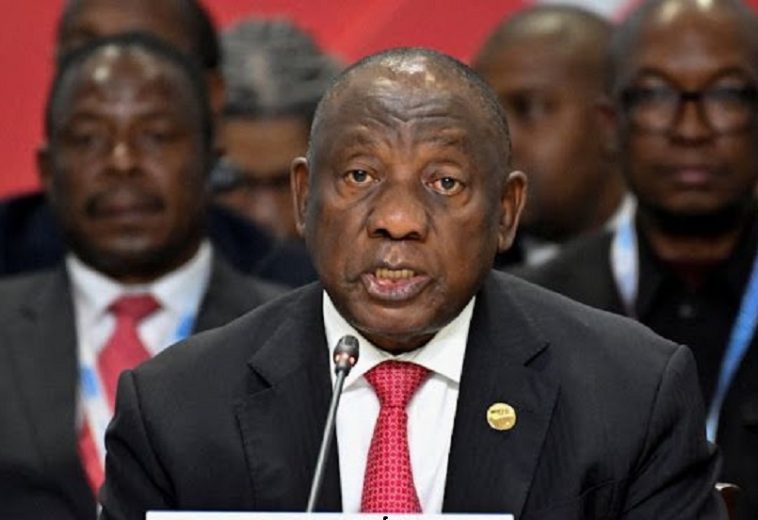Coalition governments are increasingly reshaping Africa’s political landscape, reflecting the growing need for power-sharing in countries where no single party can secure a majority. A notable example is South Africa’s Government of National Unity (GNU), formed after the 2024 elections, marking a significant shift in governance. This collaboration between the African National Congress (ANC), the Democratic Alliance (DA), and smaller parties highlights the deepening of democratic practices and offers lessons for other African nations and beyond.
The South African Experience
South Africa’s GNU represents a bold step towards stabilising governance at both national and provincial levels. Historically, the ANC has dominated the country’s politics, but recent elections failed to deliver a clear majority, necessitating a coalition. The inclusion of the DA, a party with markedly different ideological leanings, reflects a maturing political landscape where governance takes precedence over partisanship.
In provinces such as Gauteng and KwaZulu-Natal, which have previously experienced unstable leadership due to fragile coalitions, the GNU seeks to address inefficiencies by preventing any one party from dominating without oversight. The DA’s insistence on genuine power-sharing, rather than merely supporting the ANC without decision-making authority, demonstrates a commitment to proportional representation and ensures that the government reflects South Africa’s diverse political views.
However, the coalition faces significant challenges. Ideological differences between the ANC’s socialist policies and the DA’s liberal platform could create friction. Disputes over key issues such as land reform, economic management, and healthcare could undermine the coalition, as seen in previous metro coalitions in cities like Johannesburg and Nelson Mandela Bay, where leadership changes were frequent due to unresolved conflicts.
As Gustavo de Carvalho from the South African Institute of International Affairs (SAIIA) suggests, the success of this coalition will depend on how effectively the ANC and DA manage these ideological differences.
Broader Implications for Africa
Coalition governments are not unique to South Africa. Kenya, another major political player on the continent, has experienced contentious elections and increasing public demand for inclusive governance. The 2018 “handshake” between President Uhuru Kenyatta and opposition leader Raila Odinga is an example of how coalition frameworks can prevent political crises and civil unrest. While not a formal coalition, their agreement led to the Building Bridges Initiative, aiming to restructure Kenya’s political system towards more equitable power-sharing.
In countries like Zimbabwe and Malawi, where political tensions are high, coalition governments could offer a path to stability and reform. Zimbabwe’s disputed 2018 elections, for instance, might have benefitted from a coalition to avoid post-election violence. Similarly, Malawi’s 2020 political transition, where opposition parties formed a successful coalition to unseat the incumbent, demonstrates how collective governance can lead to democratic renewal.
Global Lessons from Africa’s Coalition Politics
Africa’s shift towards coalition governments offers valuable insights for democracies worldwide, particularly in Europe and the United States, where political fragmentation and polarisation are becoming more pronounced. In many European nations, coalition governments have long been the norm. Germany, for example, has maintained stable governance through power-sharing agreements between political rivals. This model is becoming increasingly relevant in regions with divided electorates.
In the United States, extreme political polarisation has led to gridlock. Although coalition governments are not part of the US system, bipartisan collaboration could serve as a parallel. Emulating aspects of coalition governance might reduce legislative standstills and promote more effective policymaking. Furthermore, South Africa’s emphasis on proportional representation highlights the importance of ensuring that minority voices are heard in governance—an approach that could help address voter disenfranchisement in many parts of the world.
Challenges and Prospects
While coalition governments offer promising opportunities for inclusive governance, they also present challenges. One of the primary obstacles is ensuring cohesion and stability, as ideological differences often lead to tensions. In South Africa, the success of the ANC-DA partnership will depend on their ability to manage conflicts over contentious issues like economic reform and land redistribution. Other African nations considering coalition governments must also develop frameworks for effective power-sharing to avoid frequent leadership changes and policy paralysis.
The rise of coalition governments in Africa signals a broader trend towards more inclusive and democratic governance models. South Africa’s experiment with a GNU offers a valuable case study in both the opportunities and challenges of coalition politics. While ideological divisions may pose risks, the potential for stabilising governance and ensuring broader representation makes coalition governments an increasingly attractive option across the continent.
Coalition politics in Africa: A blueprint for global democracy?
The lessons from Africa’s coalition politics extend beyond its borders, offering insights into how fragmented democracies worldwide might address political divides through shared governance. As the world observes these developments, Africa’s innovative approaches to power-sharing could serve as a blueprint for governance in an era of growing political complexity.




